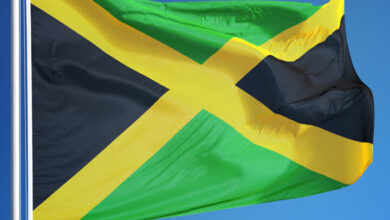JAMAICA Ethanol Processing has shut down its ethanol plant and terminated 31 jobs after 26 years in the business.
The move was completed last week after three consecutive years of rising input costs helped to sever margins and drive the company out of an ethanol market in which it started operating long before the other two operators in Jamaica — Jamaica Broilers Group (JBG) and Petrojam.
“The CBI (Caribbean Basin Initiative) ethanol business has been in distress for the last three years, initiated by the volatality of the commodities market and essentially an upside down trading set-up where the primary input — hydrous ethanol feedstock — cost is higher than the product that we sell,” Jamaica Ethanol Processing managing director Erwin Jones informed the Business Observer yesterday.
Jamaica Ethanol had a production capacity of 50 million gallons per annum.
Jamaica Ethanol imported hydrous ethanol from Brazil and processed it into anhydrous ethanol. But prices of the raw material have surged to record levels due to numerous supply issues, including competition from the automobiles sector which uses hydrous ethanol in its flex-fuel vehicles; high sugar prices which have diverted lots of sugar cane processing to raw sugar; and bad weather.
“Prices have gone up substantially in Brazil,” noted Jones. “So what the (Brazilian) Government has done in the case of shortages there due to high demand, is to adjust back the blend ratio (ethanol-gasoline).”
What's more is that due to the US financial constraints, Jones said the industry is bracing for a fallout in the CBI, which allows CBI members — including Jamaica — to supply up to seven per cent of US ethanol on a duty-free basis.
“The trading arrangement with the US seems to have run into a problem in the face of the budget deficit issues in the US,” said Jones, adding “I think we are about to see the end of the blenders' credit funds, which helps to provide a price support for ethanol, and the import tariff.
“It's a double whammy — we are losing our political support for the trading arrangement and the commodity market conspired to undermine our margin opportunity,” he argued.
Jones said that his company will continue to supply sugar but that segment of the business, he said, does not employ a significant amount of persons.
“We supply a significant part of refined sugar to industrial users, so we will have some continuing operations, but the ethanol business is done for all intents and purposes,” Jones regrettably told the Business Observer about the ethanol business he started in 1985.
Jamaica Broilers began its ethanol operations, JB Ethanol, in 2006 to take advantage of a price differential on Brazilian ethanol exported directly to the US and product passing through a Caribbean processing facility which benefits from the tax exemptions under the CBI. Its ethanol operations was highly profitable up to last financial year, when the price of ethanol in the US (which fluctuated between US$2.50-US$2.80 a gallon, or higher than the long-run price projected by JBG of US$2.20) was not high enough to offset production costs, primarily due to the high price of the raw material. Ironically, Jamaica Broilers executives are bullish about its ethanol business because of energy regulations in the US which they say may put a cap on conventional biofuels, such as corn-based ethanol, and leave the market open for sugar-cane ethanol, which qualifies as an advanced biofuel.
Petrojam Ethanol which began operating in 2005 was up to June searching for a new supplier of hydrous ethanol, having shut down its plant temporarily.





